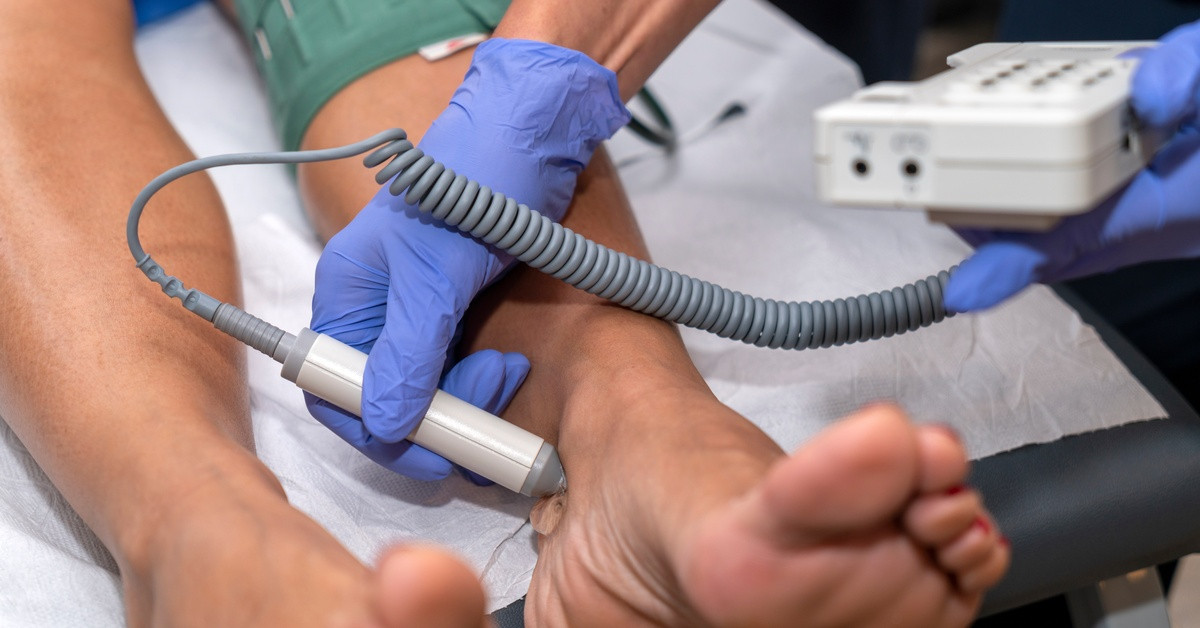Assessing Musculoskeletal Blood Flow Using Dopplers
When it comes to diagnosing and managing conditions related to musculoskeletal blood flow, precision and efficiency are paramount. Medical professionals rely on innovative tools to provide accurate assessments, and vascular Dopplers have emerged as a critical instrument in this field. We’ll discuss assessing musculoskeletal blood flow using Dopplers, their importance, and how leading products from Cascade Health can enhance diagnostic and patient care processes.
Musculoskeletal Blood Flow Assessment
Understanding blood flow is essential in diagnosing various musculoskeletal conditions, including vascular disorders and injuries. Comprehensive blood flow assessment not only aids in identifying problem areas but also in formulating effective treatment plans. This is where vascular Dopplers play a crucial role, providing precise, real-time insights.
Vascular Dopplers
Vascular Dopplers are devices that utilize sound waves to measure and evaluate blood flow through vessels. These handheld tools are widely used in both diagnostic and treatment settings, delivering reliable support for detecting vascular insufficiencies and other circulatory issues that impact musculoskeletal health.
Designed for versatility, vascular Dopplers are suitable for a wide range of general clinical applications and specialty areas. Their portability and ease of use make them a staple in clinics, hospitals, and diagnostic centers alike.
How Vascular Dopplers Work
Vascular Dopplers function by emitting ultrasonic sound waves through the skin and tissues. These sound waves bounce back when they hit moving blood cells, producing a Doppler effect. The device then converts these sound waves into audible signals or visual waveforms, which allow healthcare providers to assess blood flow velocity and quality.
This data is crucial for evaluating circulation health, identifying occlusions, and managing conditions such as peripheral artery disease (PAD). Many vascular Dopplers feature advanced options such as digital signal clarity for more precise diagnostics.
The Importance of ABI Testing
One of the most significant applications of vascular Dopplers is ankle-brachial index (ABI) testing. This non-invasive method compares the blood pressure in the ankle to that in the arm, helping to diagnose conditions like PAD. Early detection through ABI testing can lead to timely interventions, improving patient outcomes and quality of life.
Medical practices that perform ABI testing gain an effective, straightforward diagnostic edge. ABI systems equipped with Dopplers are integral for tracking disease progression and determining the success of therapeutic efforts.
Vascular Dopplers from Cascade Health
When selecting vascular Dopplers, reliability, performance, and quality are non-negotiable. Cascade Health offers an extensive range of portable vascular Dopplers designed to meet these criteria. From portable, battery-operated models to advanced systems for detailed vascular assessments, Cascade Health ensures healthcare providers have access to top-tier equipment.
Alongside ABI systems and strong partnerships with reputable manufacturers such as Huntleigh and Newman, Cascade Health offers a selection tailored to meet various medical needs. Additionally, customers benefit from competitive pricing, multi-unit discounts, and exceptional customer service.
Elevating Patient Care with Advanced Tools
Enhancing patient outcomes begins with accurate diagnosis and effective monitoring. Assessing musculoskeletal blood flow with Dopplers provides precision and ease of use, supporting better medical decisions. Cascade Health’s curated selection of Dopplers ensures healthcare providers have access to the most reliable tools for their practice.
Equip your facility with premium-quality devices. Check out Cascade Health's professional vascular Dopplers to take the next step in delivering outstanding patient care.
Recent Posts
-
The History and Evolution of the Speculum
Most women view the speculum as a symbol of modern routine healthcare, a cold but necessary instrume
-
What Midwives Should Teach New Parents Regarding Breastmilk
The transition into parenthood presents a profound physiological and emotional shift for growing fam



